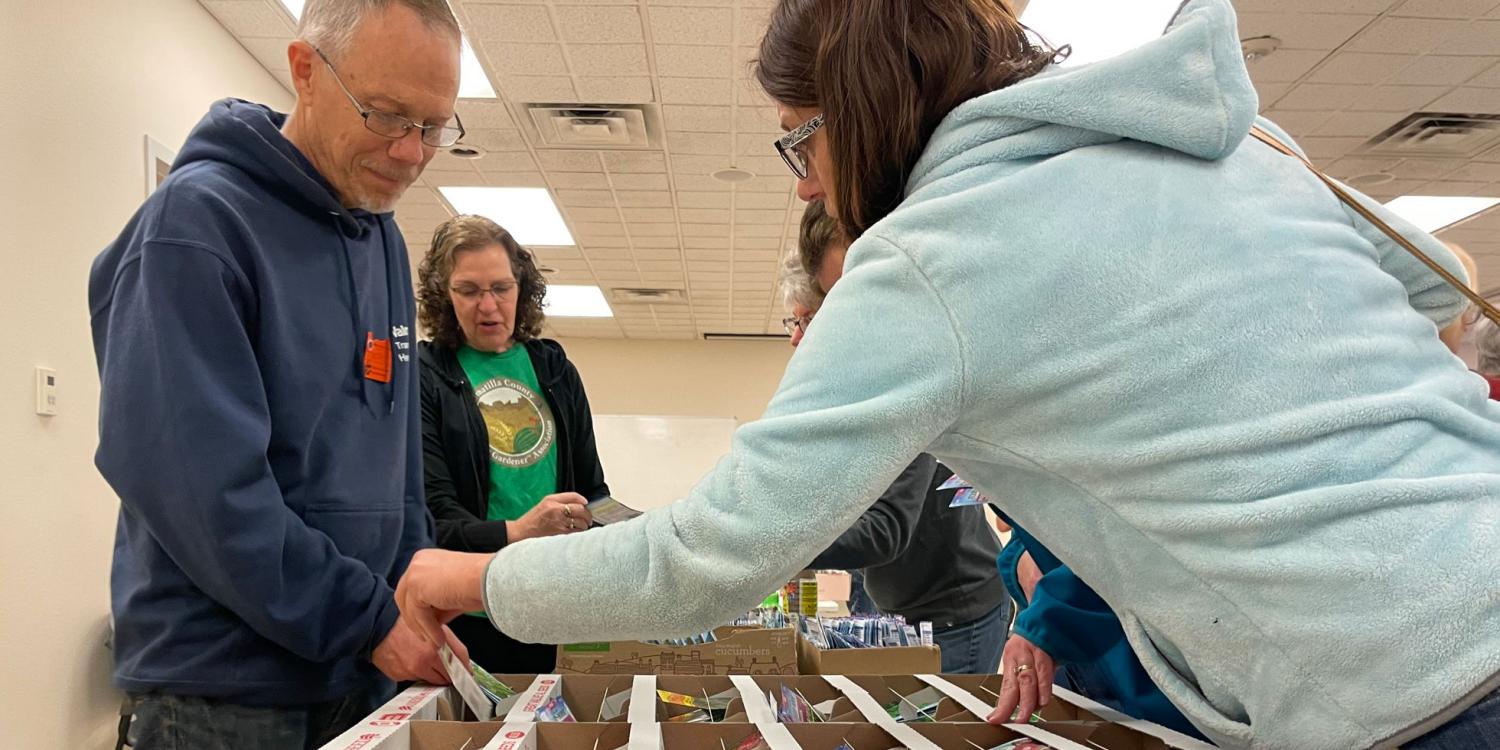
Seed to Supper is a free, comprehensive, six-week beginning gardening course that was co-created by the Oregon Food Bank and the Oregon State University Extension Service. Seed to Supper focuses on serving communities who have historically experienced disproportionate rates of hunger. The curriculum for Seed to Supper is available in English, as well as in Spanish. In Spanish, it is called Siembra la Cena.
The program, currently administered by OSU Extension, is designed to give beginning, adult gardeners the tools they need to successfully grow a portion of their own food on a limited budget. Growing their own vegetables and fruits is one-way people can combat food insecurity.
Seed to Supper participants receive:
- Access to digital PDF copies of Seed to Supper program course book.
- Access to digital presentations to teach Seed to Supper.
- Access to digital templates for customizing and promoting Seed to Supper.
- Program updates and supporting information sent in a newsletter.
- A facilitator that has been trained in diversity, equity, and inclusion.
Here are the impacts of Seed to Supper in two counties: Sherman and Umatilla.
In Sherman County, two Seed to Supper courses were held in 2023 through the Sherman County Senior Center and were designed for low-income and older adults. The first round of classes had 19 students and was held in the northern, lower altitude, longer growing season location of Rufus.
The second series in Sherman County was held in Moro with five students. During the course, participants received a free course book, a collection of cool-season direct sow seeds, had access to herb and warm-season crop seeds, a graduation certificate and their choice of various gardening supplies.
In Umatilla County, although most of the county is used for agriculture, less than 10% of farms sell produce directly to consumers. Teams of OSU Extension Master Gardener volunteers were assembled for three locations – Hermiston, Pendleton and Yellowhawk Tribal Health Center – to implement a Seed to Supper course. The classes were taught by Master Gardeners, retired Extension faculty and Extension staff. Participants received relevant goodies and supplies like gardening gloves, seed packets, soil thermometers, etc.
There was such a demand for the course in Hermiston that attendance was capped after 54. Twenty-nine people registered for the Pendleton course. The course was well-received in all locations, and attendees expressed gratitude throughout the course and on the post-course surveys.
The average post-course survey respondent indicated they felt more motivated to eat more fruits and vegetables, planned to grow some of their own food that season, felt more confident about growing their own food, felt more connected with others in their community, and knew how to access low-cost gardening resources in their community because of this course.